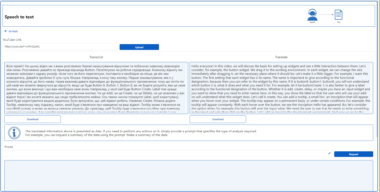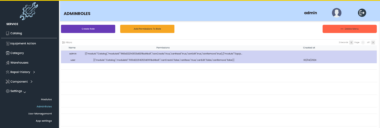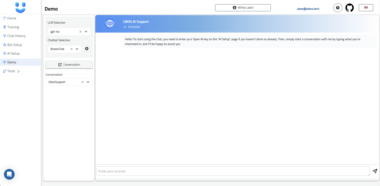Overview of MCP Servers for Algolia Integration
In the rapidly evolving world of artificial intelligence and machine learning, the need for seamless integration between AI models and external data sources is paramount. The MCP (Model Context Protocol) server stands out as a pivotal tool in this landscape. Designed to act as a bridge, it allows AI models to access and interact with external data sources and tools, thereby enhancing their capabilities and performance.
What is MCP Server?
MCP is an open protocol that standardizes how applications provide context to LLMs (Large Language Models). The MCP server, in particular, facilitates the interaction between AI models and external data sources, making it an indispensable tool for developers and businesses looking to harness the full potential of AI.
Key Features of MCP Servers for Algolia
Seamless Integration: MCP servers offer a streamlined process for integrating with Algolia, a powerful search and discovery API for building fast and relevant search experiences.
Flexibility: The MCP server is experimental and open for exploration, allowing developers to customize, fork, and build on top of it, although it’s not officially supported by Algolia.
Adaptability: While using MCP in production could affect Algolia usage, it provides a significant opportunity to experiment and adapt to specific needs.
Debugging and Inspection: With tools like the MCP Inspector, developers can manually run and check MCP features, ensuring robust performance and identifying potential issues.
Local Orchestration with Ollama: Developers can run a local mcphost to orchestrate MCP servers, facilitating local testing and integration with other models.
Use Cases
Enhanced Search Capabilities: By integrating with Algolia, MCP servers can enhance search functionalities, enabling more precise and relevant search results.
Data Interaction: MCP servers allow AI models to interact with external data, opening up possibilities for data-driven insights and decision-making.
Custom AI Solutions: Businesses can leverage MCP servers to develop custom AI solutions tailored to their unique requirements, enhancing operational efficiency and customer satisfaction.
UBOS Platform Integration
The UBOS platform, a full-stack AI Agent Development Platform, complements the capabilities of MCP servers. UBOS focuses on bringing AI Agents to every business department, orchestrating AI Agents, connecting them with enterprise data, and building custom AI Agents with LLM models and Multi-Agent Systems. This synergy between UBOS and MCP servers offers businesses a comprehensive solution for AI integration and deployment.
Conclusion
MCP servers for Algolia provide an exciting opportunity for developers and businesses to explore and enhance AI capabilities. With the flexibility and adaptability offered by MCP, coupled with the robust features of the UBOS platform, organizations can unlock new potentials in AI-driven solutions. Whether it’s enhancing search functionalities or developing custom AI solutions, MCP servers stand as a valuable asset in the AI landscape.
Algolia
Project Details
- algolia/mcp
- MIT License
- Last Updated: 4/22/2025
Recomended MCP Servers
An MCP server implementation enabling LLMs to work with new APIs and frameworks

An experimental MCP server Rest Client intended to be a replacement of tools postman & insomnia

MCP to connect your LLM with Spotify.

A Model Context Protocol service for TikTok video discovery and metadata extraction.

A Minimum Control Program (MCP) server implementation for web browsing capabilities using BeautifulSoup4


A Model Context Protocol (MCP) server for the POX SDN controller


MCP Documentation Server with AI Learning Capabilities

A Model Context Protocol (MCP) server that implements the Zettelkasten knowledge management methodology, allowing you to create, link,...

A Model Context Protocol (MCP) server to enable AI tools to interact with Gradle projects programmatically.
 From vibe coding to vibe deployment. UBOS MCP turns ideas into infra with one message.
From vibe coding to vibe deployment. UBOS MCP turns ideas into infra with one message.






